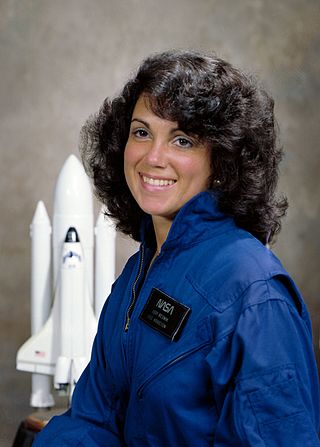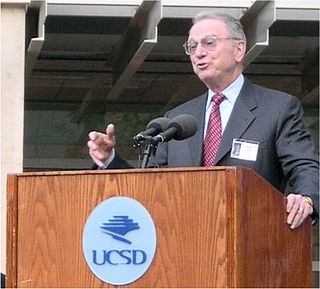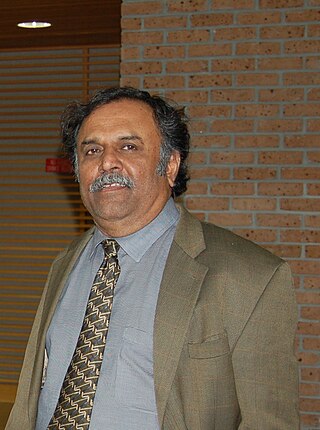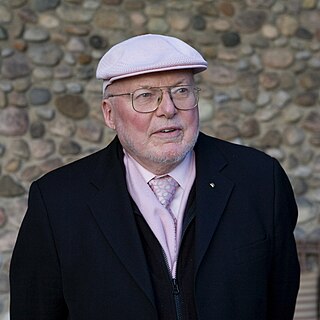Related Research Articles

Judith Arlene Resnik was an American electrical engineer, software engineer, biomedical engineer, pilot and NASA astronaut who died in the Space Shuttle Challenger disaster. She was the fourth woman, the second American woman and the first Jewish woman of any nationality to fly in space, logging 145 hours in orbit.
Thomas Kailath is an Indian born American electrical engineer, information theorist, control engineer, entrepreneur and the Hitachi America Professor of Engineering emeritus at Stanford University. Professor Kailath has authored several books, including the well-known book Linear Systems, which ranks as one of the most referenced books in the field of linear systems.

Irwin Mark Jacobs is an American electrical engineer and businessman. He is a co-founder and former chairman of Qualcomm, and chair of the board of trustees of the Salk Institute. As of 2019, Jacobs has an estimated net worth of $1.2 billion.
The IEEE Judith A. Resnik Award is a technical field award presented by the Institute of Electrical and Electronics Engineers (IEEE) to either an individual, or a team, "for outstanding contributions to space engineering within the fields of interest of the IEEE".

Sundaraja Sitharama Iyengar is an Indian-born American computer scientist and the Distinguished University Professor, Ryder Professor and Director of Computer Science at Florida International University, Miami, Florida, USA. He also founded and directs the Robotics Research Laboratory at Louisiana State University (LSU). He has been a visiting professor or scientist at Oak Ridge National Laboratory, Jet Propulsion Laboratory, Naval Research Laboratory, and has been awarded the Satish Dhawan Visiting Chaired Professorship at the Indian Institute of Science, the Homi Bhaba Visiting Chaired Professor (IGCAR), and a professorship at the University of Paris (Sorbonne).

Moshe Kam is an American Israeli electrical engineer. He is an engineering educator serving as Distinguished Professor and Dean of the Newark College of Engineering at the New Jersey Institute of Technology. Until August 2014 he served as the Robert G. Quinn Professor and department head of electrical and computer engineering at Drexel University. In 2011, he served concurrently as the 49th president and CEO of IEEE. Earlier he was IEEE's vice president for educational activities (2005–2007) and IEEE's representative director to the accreditation body ABET. Kam is known for his studies of decision fusion and distributed detection, which focus on computationally feasible fusion rules for multi-sensor systems.

Kenneth Carless Smith was a Canadian electrical engineer and academic. He was a Professor Emeritus, University of Toronto, cross-appointed to the departments of electrical and computer engineering, mechanical and industrial engineering, computer science, and the faculty of information science. Smith died on October 29, 2023, at the age of 91.

Harold Vincent Poor FRS FREng is the Michael Henry Strater University Professor of Electrical Engineering at Princeton University, where he is also the Interim Dean of the School of Engineering and Applied Science. He is a specialist in wireless telecommunications, signal processing and information theory. He has received many honorary degrees and election to national academies. He was also President of IEEE Information Theory Society (1990). He is on the board of directors of the IEEE Foundation.

AlfonsoFarinaFREng is an Italian electronic engineer and former industry manager. He is most noted for the development of the track while scan techniques for radars and generally for the development of a wide range of signal processing techniques used for sensors where tracking plays an essential role. He is author of about 1000 publications. His work was aimed to a synergistic cooperation between industry and academy.

Kamal Sarabandi is an Iranian-American scientist and the Fawwaz T. Ulaby Distinguished University Professor of EECS and the Rufus S. Teesdale endowed Professor of Engineering at the University of Michigan, where he teaches and conducts research on the science and technology of microwave and millimeter wave radar remote sensing, wireless technology, electromagnetic wave propagation and scattering, metamaterials, antenna miniaturization, and nano antennas.
Teresa Pace is an electrical engineer at L3Harris. She received her doctorate in EE at The Pennsylvania State University. She specializes in digital image and signal processing for the development of detection, recognition, classification, tracking, and image enhancement algorithms primarily for EO/IR US defense applications. She has worked at PSU ARL, Lockheed Martin Missiles and Fire Control as well as LM Global Training Solutions, DRS a Finnmechanica Company, The US Army’s Night Vision Labs as a subject matter expert and SenTech, LLC, in Orlando, Florida. She was named a Fellow of the Institute of Electrical and Electronics Engineers (IEEE) in 2015 for her contributions to image and signal processing algorithms for sensor systems. Dr Pace received the highest technical award from LM, the Nova Award for her individual contributions in real time video tracking. She has 15 patents and over 80 publications. She is a life member of HKN engineering honor society, past president of IEEE Aerospace and Electronic Systems Society, past Editor in Chief for IEEE AESS magazine, and a member of IEEE Women in Engineering, and was chair of the SPIE society’s Defense, Commercial, and Sensing Conference.
Subhasish Mitra is an American Computer Science and Electrical Engineering professor at Stanford University. He directs the Stanford Robust Systems Group, leads the Computation Focus Area of the Stanford SystemX Alliance, and is a member of the Wu Tsai Neurosciences Institute. His research ranges across Robust Computing, NanoSystems, Electronic Design Automation (EDA), and Neurosciences. He generally "teaches" EE 108 - digital systems design at stanford.
Manijeh Razeghi is an Iranian-American scientist in the fields of semiconductors and optoelectronic devices. She is a pioneer in modern epitaxial techniques for semiconductors such as low pressure metalorganic chemical vapor deposition (MOCVD), vapor phase epitaxy (VPE), molecular beam epitaxy (MBE), GasMBE, and MOMBE. These techniques have enabled the development of semiconductor devices and quantum structures with higher composition consistency and reliability, leading to major advancement in InP and GaAs based quantum photonics and electronic devices, which were at the core of the late 20th century optical fiber telecommunications and early information technology.

Moeness G. Amin is an Egyptian-American professor and engineer. Amin is the director of the Center for Advanced Communications and a professor in the Department of Electrical and Computer Engineering at Villanova University.
Vir Virander Phoha is a professor of electrical engineering and computer science at Syracuse University College of Engineering and Computer Science.
Maruthi Ram Akella is an Indian-American aerospace engineer. Akella specializes in the control of complex dynamical systems that are subject to large scale nonlinearities and uncertainties.
Krishnendu Chakrabarty is an Indian-American electrical and computer engineer. He is the Fulton Professor of Microelectronics at Arizona State University Ira A. Fulton Schools of Engineering. Before joining Arizona State, he was the John Cocke Distinguished Professor and was the Chair of the Department of Electrical and Computer Engineering at Duke University Pratt School of Engineering.
Thomas W. Williams was an American engineer, Chief Scientist and fellow at Synopsys. He is known for his contributions to electronic design, automation and testing of electronic systems.
Edward B. Eichelberger is an American engineer and wrestler. He holds the distinctions of IBM Fellow and IEEE Fellow (1986) for contributions to VLSI chip design, integrated circuit design, and electronic design automation. Eichelberger shared with Thomas W. Williams (engineer) the 1989 IEEE Computer Society W. Wallace McDowell Award “for developing the level-sensitive scan technique of testing solid-state logic circuits and for leading, defining, and promoting design for testability concepts.” In 2000, Eichelberger received the IEEE Test Technology Technical Council's Lifetime Contribution Medal.
References
- ↑ Stirling, Diane (14 December 2022). "3 Faculty Members Attain Prestigious IEEE Fellow Recognition". Syracuse University News . Retrieved 14 June 2023.
- ↑ Dunbar, Alex (9 March 2022). "Professor Pramod K. Varshney Honored With 2021 IEEE Aerospace and Electronic Systems Society Pioneer Award". SU News. Retrieved 6 February 2024.
- ↑ Rodoski, Kelly Homan (May 1, 2012). "Varshney to receive IEEE Judith A. Resnik Award for pioneering work in wireless technology". Syracuse University News . Retrieved December 30, 2022.
- ↑ Wheeler, Matt (31 July 2018). "Varshney Receives Lifetime Achievement Award". SU News. Retrieved 6 February 2024.